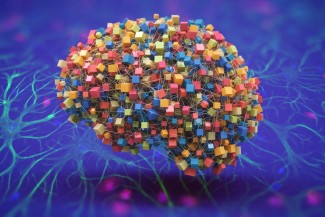Neuroscience encompasses all scientific research into the nervous system, namely the brain, spinal cord and nerves.
Different Scales of Study
Different scales of study give rise to different fields of research, such as molecular neuroscience, cellular neuroscience, neurophysiology, and cognitive neuroscience. This is how research at Paris Brain Institute is organized, according to five major interconnected areas.
Neuroscience Researchers
Researchers, doctors, biologists, pharmacologists, mathematicians, engineers, physicists, computer scientists, technicians, paramedical professionals, support staff… Paris Brain Institute brings together a multidisciplinary team of individuals who work closely together. Through collaboration between researchers and doctors, patients can benefit more quickly from diagnostic and therapeutic innovations. The strength of Paris Brain Institute lies in the exchanges between these experts from different backgrounds and the pooling of their skills to find treatments as quickly as possible.
Our brains make us who we are! Each of us is unique because each of us has a unique brain. The researchers and clinicians at Paris Brain Institute tackle challenges ranging from brain development and brain cell function to how brain networks create behavior and emotions, and how diseases such as brain tumors, Alzheimer’s and Parkinson’s disease, epilepsy, and depression begin, develop, and could be stopped. They have access to the latest techniques and equipment in neuroscience, from molecular exploration to brain imaging, to gain a detailed understanding of how the brain works and how it malfunctions in the case of brain disorders.
Scientific research is a long-term endeavor, as it requires financial, human, technological, and environmental resources. Some work that might go relatively unnoticed will only reveal its potential in the medium or long term.
- Neuron :
- Basic cell of the nervous tissue, capable of receiving, analysing, reproducing and transmitting information in the form of an electrical or chemical signal.

